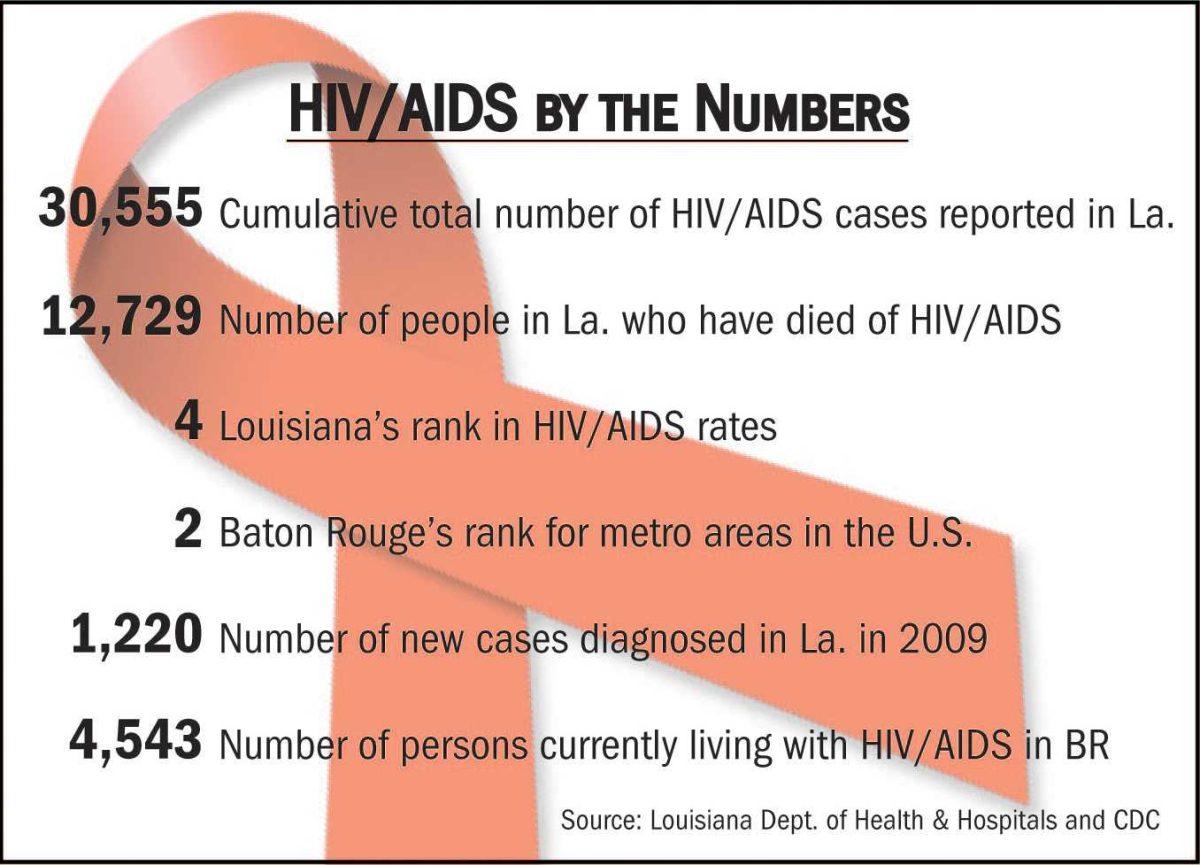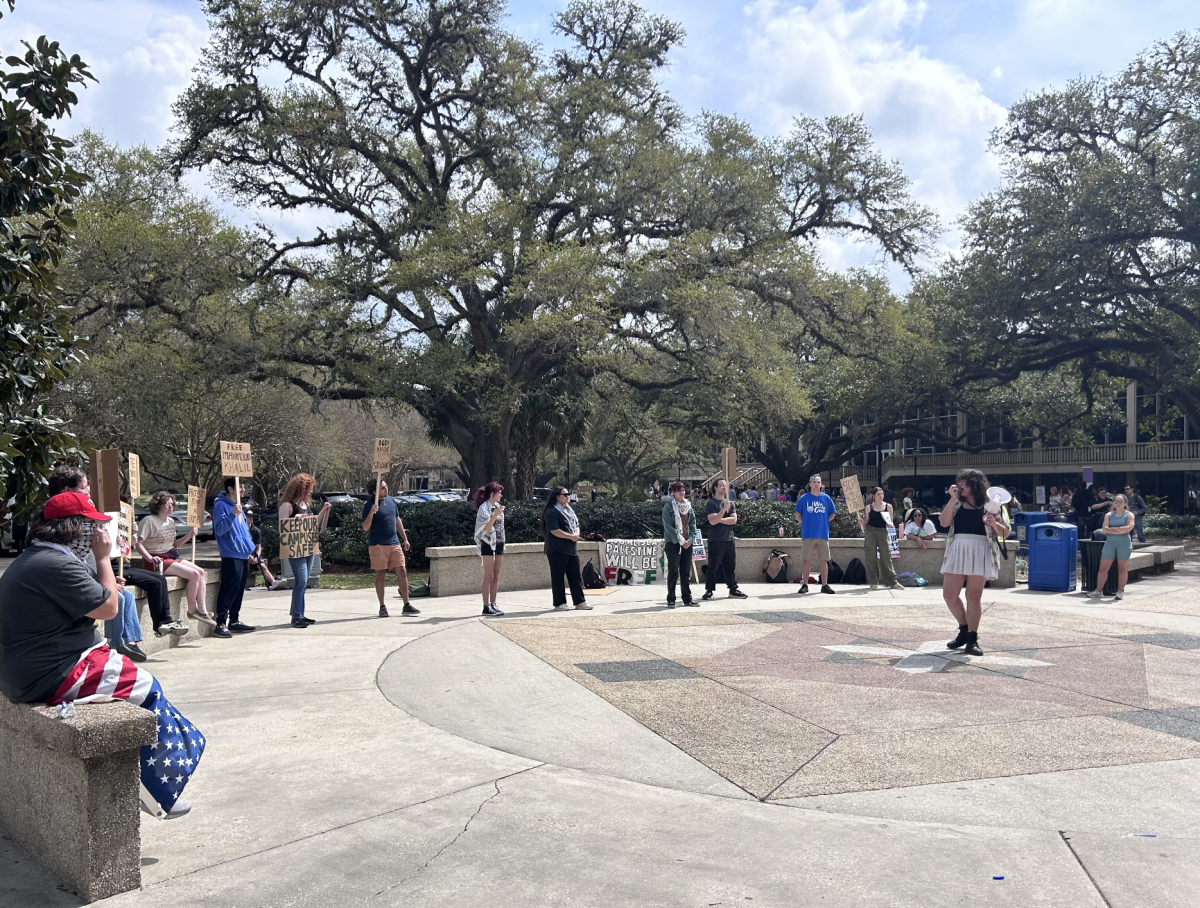As rates of HIV and AIDS cases continue to rise in Louisiana, some University students showed their commitment to fighting the disease Wednesday by wearing red clothing in honor of World AIDS Day.
Lindsey Miller, international studies and political science sophomore, said wearing red Dec. 1 is about more than spreading awareness.
“I don’t know anyone personally who has AIDS or who has died of AIDS, but I still know something needs to be done,” Miller said. “[Students] need to be aware of how big of an issue it really is.”
Miller said recognizing awareness efforts like World AIDS Day helps alleviate the heavy stigma attached to the disease. She said it is important to remember the disease is not limited to the homosexual community.
University organizations, such as Spectrum and Women Organizing Women, usually recognize World AIDS Day every year through campus events. Spectrum President Kat Barry said the group was not able to do a program this year because of the conflict with dead week.
The LSU men’s basketball team could also be seen supporting AIDS awareness as coach Trent Johnson and his staff wore red ribbons at Tuesday’s game against the Houston Cougars in honor of World AIDS Day. Johnson began this tradition after traveling to South Africa for 10 days this summer.
But Miller said it is important to remember that AIDS is an international issue.
“AIDS is such a big deal. It’s not just in Africa, it’s all over the world,” Miller explained.
According to the Louisiana HIV/AIDS Surveillance Quarterly Report, 30,555 HIV/AIDS cases have been reported in Louisiana, including 316 pediatric cases, as of Sept. 31.
The Louisiana Department of Health and Hospital’s report stated Louisiana has the fourth highest rate of AIDS cases in the nation, and Baton Rouge is ranked No. 2 in rates among U.S. metropolitan areas. Of the 1,220 new diagnosed HIV cases in 2009, 25 percent occurred in Baton Rouge.
Of the 308 persons diagnosed in Baton Rouge in 2009 alone, 28 percent were young adults age 13 to 24.
“We have no way of knowing how many students at LSU have HIV or AIDS,” said Hope McPhatter, University health promotion coordinator in the Student Health Center. “However, since 2005 to August 2010, of the students who got tested at the Health Center, only 10 were positive.”
The Student Health Center offers confidential testing for $20, and results are given within two days. McPhatter said students who are sexually active are encouraged to get tested every three to six months.
Students also have the option of getting tested at clinics like the HIV/AIDS Allience for Region Two, or HAART, free of charge. Sharon DeCuir, HAART risk management coordinator, said the test is an oral swab and takes about 20 minutes.
DeCuir said HAART, which is located off North Boulevard, prefers call-ins prior to the test, but walk-ins are accepted before 4 p.m. on week days.
“Students can protect themselves by having open and honest communication with their partners,” McPhatter said. “It’s very important to discuss past sexual history and any diagnoses of [sexually transmitted infections].”
She said students who engage in higher risk sexual activities are more at risk for contracting an STI or HIV. These activities include, but are not limited to, having relations with multiple partners, using IV drugs with others and engaging in sexual activities without any type of protection.
McPhatter said participating in awareness events like World AIDS Day is important because “it brings awareness to the issue and also serves to educate people about the virus and how to protect yourself.”
Students support World AIDS Day awareness
December 2, 2010




